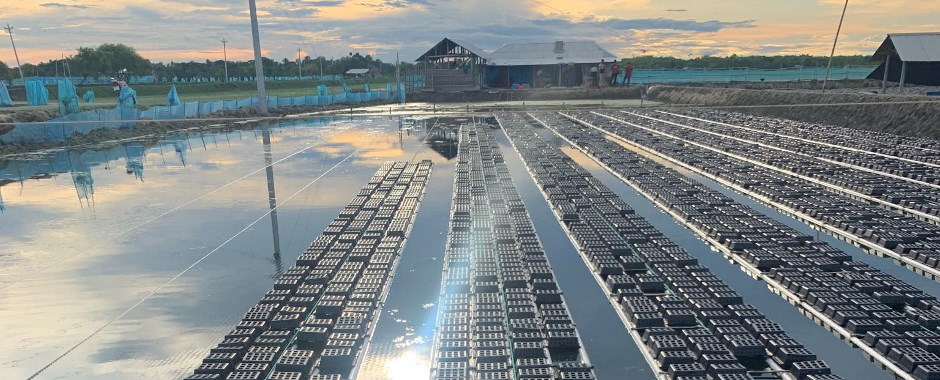Press release, 20 September 2019
Vulnerable coastal areas of South Asia face a ‘perfect storm’ of increasing climate uncertainties combined with threats to livelihoods from inequality, industrial development and marginalisation, according to an international team of researchers working with local partners in India and Bangladesh.
But the region can adapt to climate change more effectively if it recognises the ideas and knowledge of local people on the ‘front line’ of change, say the researchers from the TAPESTRY (‘Transformation as Praxis: Exploring Socially Just and Transdisciplinary Pathways to Sustainability in Marginal Environments’) project, which works in Kutch, Mumbai and the Sundarbans delta.
The UN Global Climate Summit meets on 23 September, with concrete plans demanded in a number of areas from national governments, including resilience and adaptation. Current climate adaptation measures, however, often do not recognise that climate disruption is combined with other changes and threats, with poor and marginalised people worst affected, which require long-term, collaborative action.
The initial studies, carried out by researchers from India, Bangladesh, Japan, Norway and the UK, have found that people in so-called ‘marginal’ areas near coasts and drylands are developing sophisticated ways to respond to climate-related events like sea level rise and extreme weather, as well as other changes. These innovations are being pioneered by people often seen as being on the margins, including pastoralists, fishing communities and poor island-dwellers.
The research found that these strategies are also designed to deal with a range of economic and social threats, such as rapid industrial development and the loss or enclosure of mangroves.
Prof Lyla Mehta of the Institute of Development Studies, lead researcher with TAPESTRY, said: “Local people’s voices are not often heard in the debates about adapting to climate uncertainties. But there is a wealth of ideas being generated by people on the front line of change, in ‘patches’ of transformation. The challenge is to find ways of linking these patches, scaling them up and out, and allowing others in India, Bangladesh and beyond to learn from them.”
- In the Sundarbans, the world’s largest mangrove delta, spread across India and Bangladesh, due to global warming the region is experiencing rise in sea surface temperature and sea level, increasing frequency of severe storms, and consequently, net land loss. With a population of over 7.2 million, the islands face rising salinity of the soil from sea level rise and storm surges, making growing food difficult. Here, islanders are experimenting with aquaculture and saline resistant agriculture that ensure food and livelihood security even in the face of growing uncertainties due to climate change.
- In Mumbai, a growing number of coastal ecosystems and wetlands (e.g. mangrove forests and biodiversity creeks) have been lost to commercial and infrastructure development, threatening the flourishing of Kolis, the original inhabitants of the area where the megacity was developed. The Koli fishing community are also experimenting with new methods to clear plastic from rivers and beaches, and rafts made from recycled plastic.
- In Kutch, pastoralists and their supporters are working together to get official recognition for local breeds. These include the unique ‘kharai’ (salty) swimming camels adapted to the coastal ecosystem, who eat mangroves and other local vegetation. Local organisations, camel breeders and herders are focusing on protecting the mangroves and allowing space for camels and their owners to roam, as well as exploring markets for products such as camel milk. Camels are well-adapted to dryland areas with little and unpredictable rainfall patterns.
The researchers believe that the best strategies will be those that are produced through collaboration between local people such as fishers or pastoralists and NGOs, governments and scientists, and that this could generate new kinds of knowledge.
Prof Devanathan Parthasary of the Indian Institute of Technology Bombay (IIT Bombay) said: “The initiatives we are working with in the TAPESTRY project offer scope to restore livelihoods, wellbeing and biodiversity in marginal environments affected by climate change, helping to rethink the way that people and nature relate to each other in drylands, wetlands and vulnerable coastal areas.
As climate change moves up the global agenda, it’s urgent to discover how local populations are affected in different ways by the uncertainties it causes. To create more resilient, stronger responses, it’s vital for scientists, local people, NGOs and authorities to learn from each other and build on examples of transformative change.”
Notes to editors
For detailed information on the project, interviews with our researchers, and pictures, please contact:
UK/Europe: Nathan Oxley, Institute of Development Studies +44 (0)7702 8884039 [email protected]
India + Bangladesh: Shibaji Bose, +91 96740 87140 [email protected]
About the TAPESTRY project
The TAPESTRY project involves members from India, Bangladesh, Norway, Japan and the UK, including social and environmental scientists, historians, architects and staff in non-governmental and state organisations. TAPESTRY stands for ‘Transformation as Praxis: Exploring Socially Just and Transdisciplinary Pathways to Sustainability in Marginal Environments’.
The project is using a combination of methods, including ecological studies, surveys, roundtables and policy analysis to analyse the potential for local transformations be ‘scaled up and out’.
The institutions involved are: Institute of Development Studies (IDS), UK; Norwegian University of Life Sciences; Indian Institute of Technology (IIT Bombay); Kyoto University, Japan; Sahjeevan, Gujarat; International Centre for Climate Change and Development (ICCCAD), Bangladesh; Gujarat Institute of Desert Ecology (GUIDE); Public Health Foundation of India; All India Disaster Mitigation Institute (AIDMI); Bombay 61; Conservation Action Trust (CAT); Caritas-India; Caritas-Bangladesh; University of Oslo, Norway; Hunnarshala Foundation, India; Mangrove Cell, Maharashtra; Welthungerhilfe.
The TAPESTRY project is financially supported by the Belmont Forum and NORFACE Joint Research Programme on Transformations to Sustainability, which is co-funded by ESRC, RCN, JST, ISC, and the European Commission through Horizon 2020.
More details can be found at the TAPESTRY project web page.
